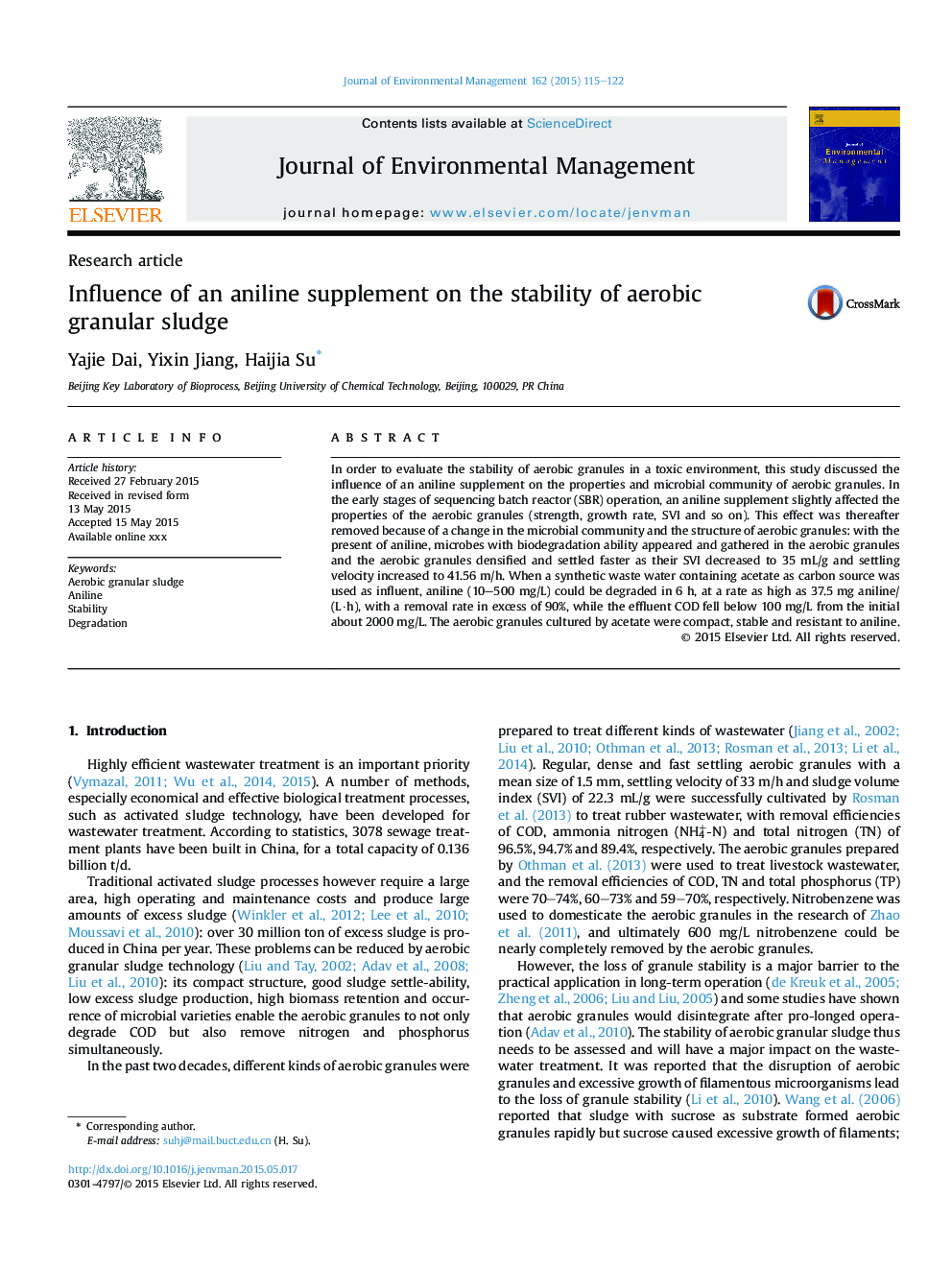| Article ID | Journal | Published Year | Pages | File Type |
|---|---|---|---|---|
| 7481463 | Journal of Environmental Management | 2015 | 8 Pages |
Abstract
In order to evaluate the stability of aerobic granules in a toxic environment, this study discussed the influence of an aniline supplement on the properties and microbial community of aerobic granules. In the early stages of sequencing batch reactor (SBR) operation, an aniline supplement slightly affected the properties of the aerobic granules (strength, growth rate, SVI and so on). This effect was thereafter removed because of a change in the microbial community and the structure of aerobic granules: with the present of aniline, microbes with biodegradation ability appeared and gathered in the aerobic granules and the aerobic granules densified and settled faster as their SVI decreased to 35 mL/g and settling velocity increased to 41.56 m/h. When a synthetic waste water containing acetate as carbon source was used as influent, aniline (10-500 mg/L) could be degraded in 6 h, at a rate as high as 37.5 mg aniline/(L·h), with a removal rate in excess of 90%, while the effluent COD fell below 100 mg/L from the initial about 2000 mg/L. The aerobic granules cultured by acetate were compact, stable and resistant to aniline.
Related Topics
Physical Sciences and Engineering
Energy
Renewable Energy, Sustainability and the Environment
Authors
Yajie Dai, Yixin Jiang, Haijia Su,
